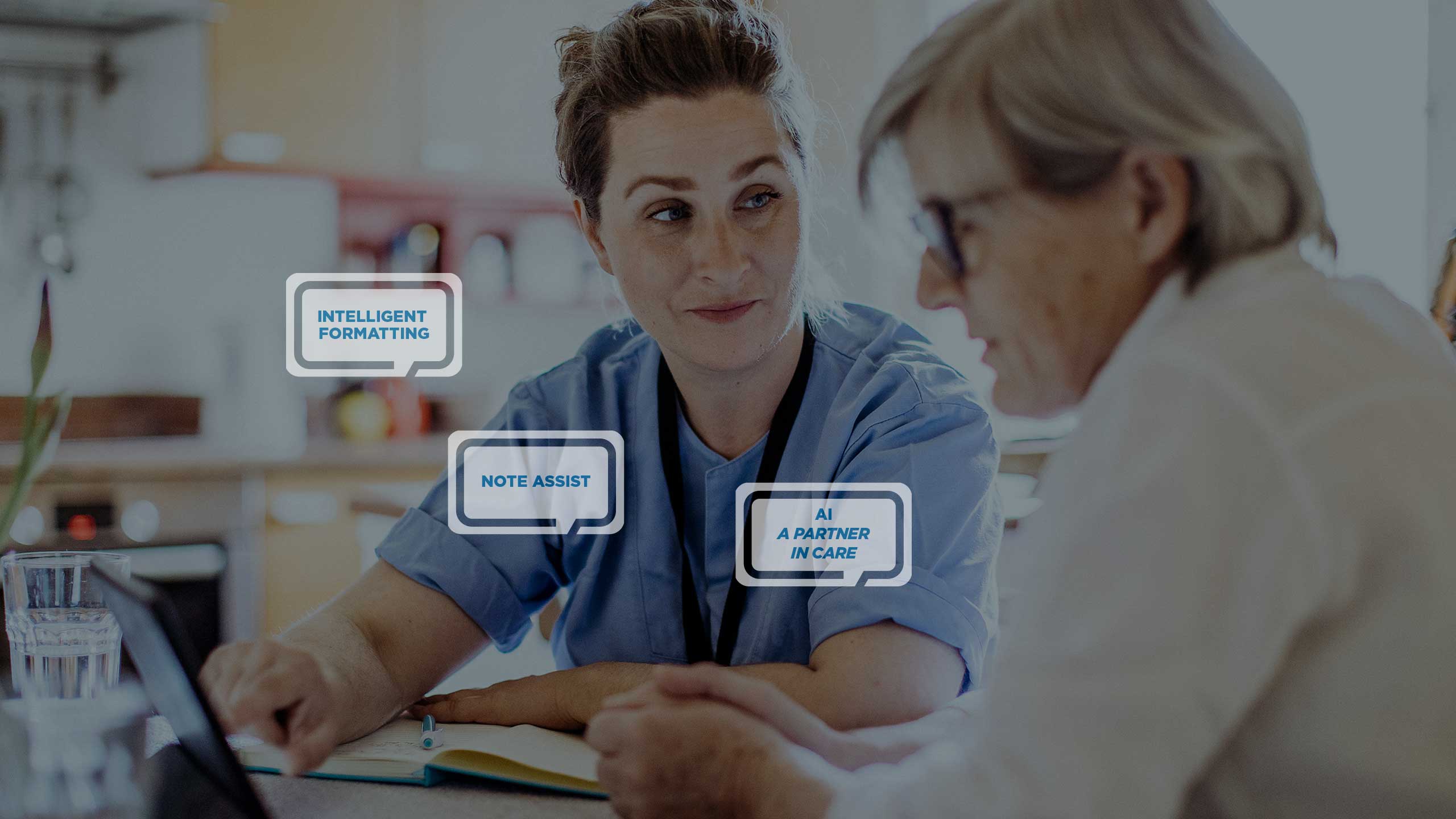The rapid evolution of artificial intelligence (AI) is transforming industries across the globe, and healthcare is no exception. As AI tools become increasingly integrated into clinical workflows, particularly in home health visits, it’s natural to have questions. Is AI moving too fast? Can AI be trusted?
Home healthcare experts like us believe these concerns are valid—and they underscore the importance of adopting AI responsibly.
We’re optimistic about the future of AI in healthcare, but we’re also cautious. Our vision is simple yet profound: AI should be used for clinicians and patients, not on them. Here’s how we see this vision unfolding in care at home.
AI Documentation Tools: Reducing Burdens and Enhancing Care at Home
Home care clinicians often face a mountain of documentation and administrative tasks. These challenges can detract from what matters most—spending time with patients and delivering compassionate care.
AI for home health visits can make a meaningful impact here. Clinicians can use AI documentation software to streamline workflows, reduce administrative burdens, and improve documentation accuracy. By enabling clinicians to focus on their expertise, judgment, and compassion, AI becomes a partner in care, not a replacement for it.
Our mantra is clear: AI should enhance the clinician's role, not replace it.
How AI Documentation Software Empowers Home Health Agencies
For home health agencies, trust in AI documentation tools is essential. These organizations prioritize safety, quality, and efficiency, and nVoq’s AI solutions are built with these values in mind.
Our tools, such as Intelligent Formatting and Note Assist, are designed to empower clinicians by augmenting their decision-making processes. By providing reliable, efficient, and user-friendly documentation software for home care, we aim to support clinicians in delivering the best possible care at home while maintaining their pivotal role in the healthcare journey.
AI, in this context, doesn’t dictate care—it assists in ensuring that clinicians have the best tools to document and deliver it.
Building Trust in AI for Home Healthcare Through Transparency
As AI adoption accelerates, we recognize the importance of trust. For clinicians and patients alike, transparency is critical. How does AI work? What safeguards are in place? How is patient privacy protected?
As experts in AI for home healthcare, we’re committed to addressing these questions head-on. Our solutions are developed with safety, compliance, and ethical standards at the forefront. By collaborating with clinicians, regulators, and other stakeholders, we aim to create tools that are not only effective but also trustworthy.
Responsible Innovation: Guiding AI Documentation Tools in Home Healthcare
The pace of AI innovation is both exciting and daunting. Without proper oversight, there’s a risk of unintended consequences. At nVoq, we champion the development of “rules of the road” to guide responsible AI use.
By fostering collaboration across the industry, we can ensure that AI documentation tools are implemented in ways that maximize their benefits while minimizing risks. Our focus remains on leveraging AI for home healthcare to improve the quality of care, reduce clinician burnout, and enhance the patient experience.
The Future of AI for Home Healthcare: A Vision for Cautious Optimism
The future of home care is deeply intertwined with the thoughtful integration of AI. We see AI for home health visits as a vital partner to clinicians, helping to bridge gaps in home healthcare documentation and workflow while maintaining the human touch that defines quality care.
By fostering trust, ensuring ethical use, and prioritizing innovation, we are embracing AI and shaping its role in improving home healthcare.
Our Ultimate Goal
AI’s role in healthcare is still unfolding, and it’s natural to approach it with both hope and caution. At nVoq, we’re optimistic about AI’s potential to enhance clinical workflows and improve patient outcomes—provided it’s implemented thoughtfully.
Our vision is clear: AI for home healthcare should be an invisible ally, empowering clinicians to focus on what they do best—caring for their patients. Together, we can harness the power of AI to build a better, more efficient future for healthcare.
